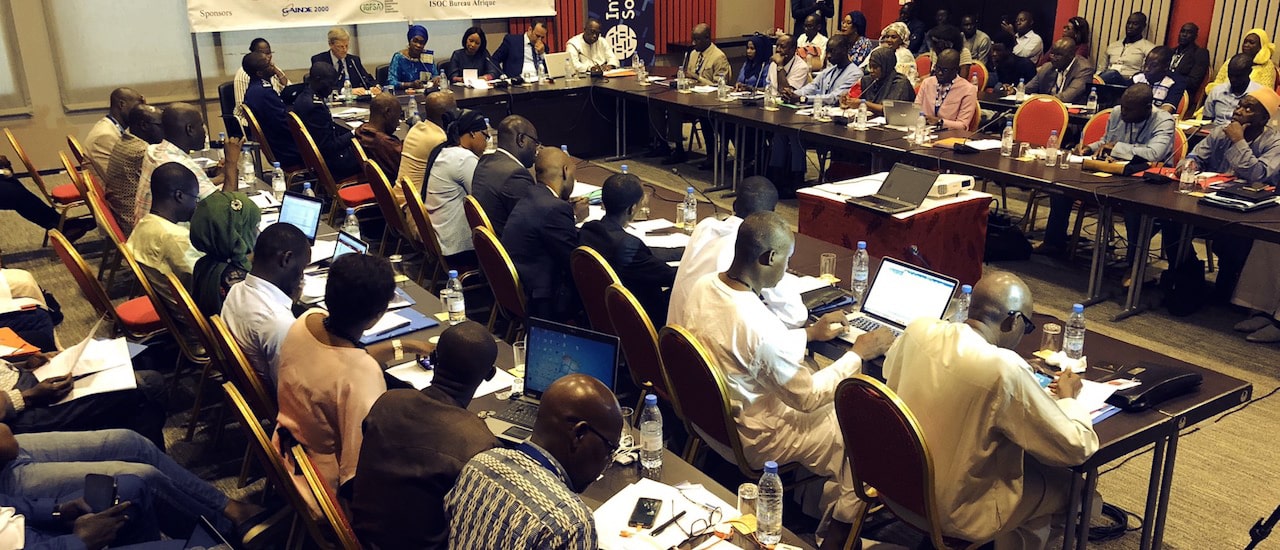Last week, we have had a busy two days (11-12 October 2018) in Dakar participating in a multistakeholder workshop on Privacy and Personal Data Protection in Senegal co-organized by the Personal Data Protection Commission (CDP), the Ministry in charge of Digital Economy (MCTPEN), the Internet Society Senegal Chapter, and supported by the African Regional Bureau of the Internet Society. This workshop was recommended in the Personal Data Protection Guidelines for Africa launched in May 2018 during #AISDakar by the African Union and the Internet Society.
Senegal stands out as the first African Union member to act on that recommendation and run such a workshop, bringing together policy makers, law enforcement, data protection authorities, lawyers, academics, entrepreneurs, and actors of the private sector, civil society, and technologists to debate the issues and build a shared vocabulary and shared understanding.
The discussion was wide-ranging, informed, and mature…
Wide-ranging, because the organizers did a great job of attracting a diverse and engaged set of stakeholders and giving them the time and space to contribute.
Informed, because the participants were asking all the right questions (about privacy, innovation, cybercrime, threats to information, reputation and rights, and so on), backed up by real experience and practical concerns.
Mature, because three themes came out strongly through the discussion:
- The Internet raises challenges, for example, of reconciling freedom of opportunity, freedom of expression, and freedom of access to information with the risk of criminal and malicious activity, and the impact of measures taken to counter such activity.
- Those challenges are as much social, economic, educational, and legal as technical, and require a correspondingly multidisciplinary approach. There are no single stakeholder solutions, here.
- Educating and mobilizing the public to make safe use of the Internet and maximize its opportunities is a huge and multifaceted task. It needs engagement at the level of families, schools, employers, and society at large. But it’s essential if we are to protect and enhance individuals’ rights while responding positively and sustainably to technical innovation.
The workshop ended with a strong recognition of the Internet a force for good in society and the importance of ensuring trust in online applications and services, as a key factor in sustaining a productive and beneficial digital economy for everyone.
Learn more about Personal Data Protection Guidelines for Africa, why your Digital Footprint matters, and how to manage and protect your Online Identity and Privacy.

